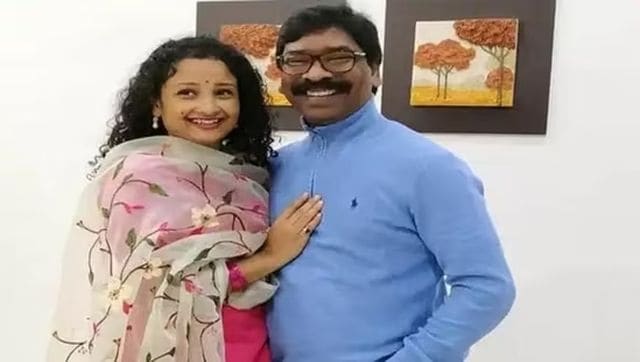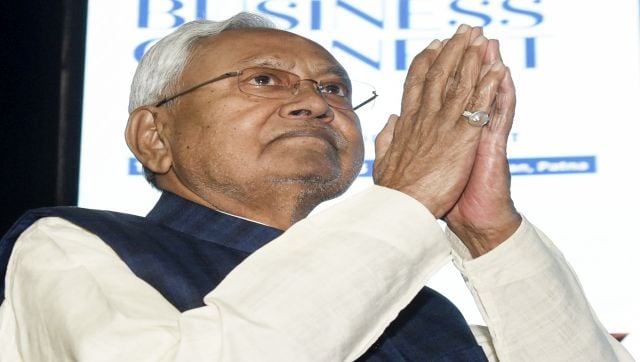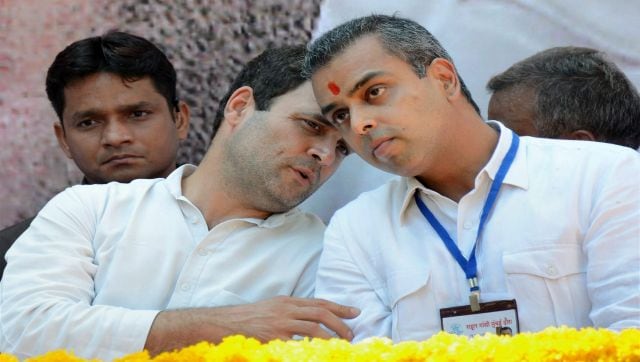Ghatsila Assembly Elections 2019 | Reserved under the Scheduled Tribe category, the Ghatsila Assembly constituency is facing a triangular contest between the BJP and Jharkhand Mukti Morcha (JMM) candidates and former MLA Pradeep Kumar Balmuchu who is contesting from the seat on AJSU ticket.
The BJP has dumped its incumbent MLA Lakshman Tudu and fielded local leader Lakhan Mardi. Mardi is an advocate and had contested the 2009 polls as an Independent candidate. Hemant Soren-led JMM, on the other hand, has fielded Ramdas Soren.
Ghatsila is one of the six Assembly segments of the Jamshedpur Lok Sabha seat that will vote on 6 December in phase two of the Jharkhand Assembly election. Ghatsila falls in East Singhbhum district of Jharkhand.
Results in the last three elections
The BJP won the seat in 2014 with party candidate Lakshman Tudu wresting the seat from JMM's Ramdas Soren. Tudu had received 52,506 votes against Ramdas who had received 46,103 votes. In 2009, Ramdas had won the seat by defeating then-incumbent MLA Balmuchu who had contested the election on a Congress ticket by a thin margin of just above 1,000 votes. Balmuchu had won the seat in 2005 by defeating Ramdas.
Following is a brief description of the Assembly constituency (as of 2014):
Constituency number: 45
Total electors: 2,33,408
Male: 1,16,940
Female: 1,16,468
Voter turnout in last Assembly Election: 69.26 percent
Major parties in the fray
The BJP, JD(U), JMM, JVM, CPI, SP, BSP and Marxist Co-ordination are the main parties from the seat.
At present, the state is ruled by the Bharatiya Janata Party (BJP) in an alliance with the All Jharkhand Students' Union (AJSU) under the leadership of Chief Minister Raghubar Das.
The term of the current Assembly will end on 5 January 2020.
In 2014, the BJP had won 37 seats, while its ally AJSU secured a win in five Assembly seats.
Among the Opposition parties, the RJD, Congress and the Jharkhand Mukti Morcha (JMM) have formed an alliance for the polls under the leadership of JMM chief Hemant Soren. Soren is also the Opposition Alliance's chief ministerial candidate.
The BJP is hoping to retain power in Jharkhand following setbacks and winning fewer seats in both the Maharashtra and Haryana Assembly election as compared to the 2014 polls in the two states. However, several of the NDA allies, including BJP's current Jharkhand alliance partner AJSU, have decided to contest the 2019 Assembly polls on their own. Ram Vilas Paswan's Lok Janshakti Party (LJP) and the Nitish Kumar-led Janata Dal (United) are also contesting the polls solo.
Out of the 81 Assembly constituencies in the state, nine are reserved for Scheduled Castes, 28 for Scheduled Tribes and 44 are of the general category. According to the Election Commission, the state's population stands at 3.2 crore, of which 86 lakh are ST and 39 lakh are ST.
The state has a total number of 2,08,52,808 electors, including Service Voters. As per the electoral rolls in January 2019, there are 1.18 crore male voters, 1.08 crore female voters and 40,336 service voters.
The number of polling stations in 2014 were 24,803.
After Maharashtra and Haryana, Jharkhand is the third state to go to polls since Prime Minister Narendra Modi won the Lok Sabha election with a thumping majority in May this year.
The 82-member Jharkhand Assembly is being held in five phases between 30 November and 20 December with the counting of votes scheduled to take place on 23 December.
December 06, 2019 at 06:43PM









No comments:
Post a Comment